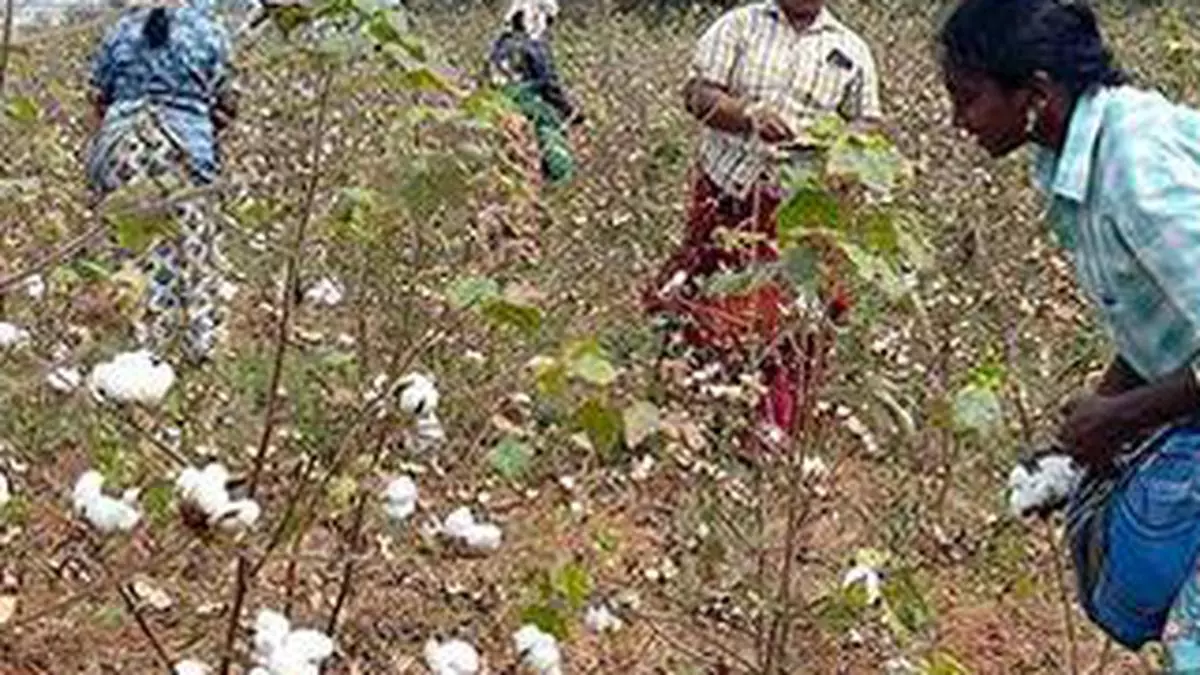Isolated efforts on to promote non-GM cotton
Almost 98 per cent of the 12 million-odd hectares of cotton grown in India is under Bt cotton. The genetically modified cotton technology, which was introduced in the early 2000s, has engulfed the whole of the country’s cotton acreage and made traditional non-GM cotton varieties disappear.
Farmers saw hope in GM cotton as it offered protection from pink bollworm, which sucked life out of the bolls, and other such pests causing enormous losses.
All, however, is not lost. Though farmers here and there have been growing non-GM cotton, it is limited to barely 2 per cent of the total cotton area in the country. Dwindling yields (which fell from 542 kg/ha in 2016-17 to 460 kg/ha in 2019-20) and the pink bollworm developing resistance made a group of organisations to consider bringing back the traditional varieties and hybrids devoid of the GM technology.
GV Ramanjaneyulu, Chief Executive Officer of the Centre for Sustainable Agriculture (CSA), said the demand for organically-grown cotton is increasing with niche clothes makers looking for such fibre as there was a huge interest among the consumers.
Positive field trials
“We have been doing field trials over the last two years and the results showed promise. We have collated the data and we are ready with seeds that can be used for commercial cultivation,” G V Ramanjaneyulu, Chief Executive Officer of Centre for Sustainable Agriculture (CSA), told businessline.
Besides CSA, there are a few other organisations in the country have joined the field trials in States such as Maharashtra, Odisha, Madhya Pradesh, Andhra Pradesh and Telangana to develop new varieties and hybrids that are primarily non-GM. They are doing these trials in association with FiBL (Research Institute of Organic Agriculture), the European Union based institute promotes organic agriculture in different countries.
“We are getting yields to the tune of 6-7 quintals. Seeds are being multiplied. The idea is to bring cotton farmers back to non-GM,” he said.
No substitute for GM?
Outside of this experiment, CSA is also working on Malkha, a brand specialising in naturally dyed, handwoven handloom cotton fabric in the country. “We are growing organic cotton on about 200 acres in Telangana,” he said.
A senior scientist at the Prof. Jayashankar Telangana State Agricultural University, however, felt that isolated efforts might happen but it can’t substitute Bt cotton, which was still offering some protection against pink bollworm.
“We have developed a few varieties and hybrids in non-GM. They are being used in a few pockets in Adilabad district,” he said.
